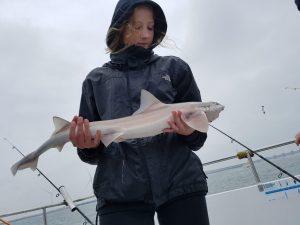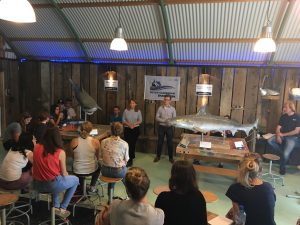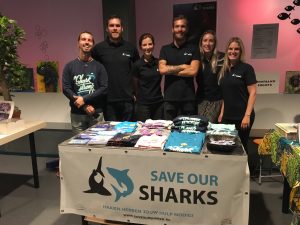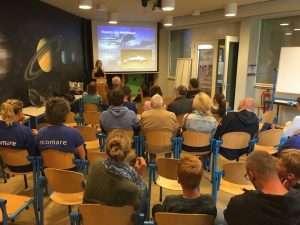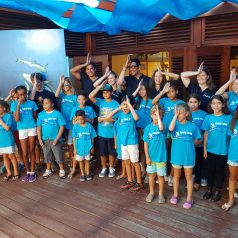
The fourth edition of Dutch Caribbean Shark Week took place last week simultaneously in Curaçao, Aruba, St. Maarten, Bonaire, St. Eustatius, Saba, and in the Netherlands. An abundance of well-attended activities highlighted the importance of sharks for our oceans, and the threats they face.
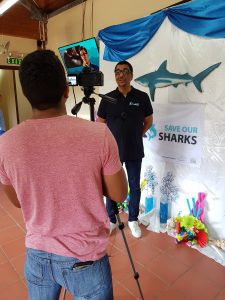
DCNA ambassador Jörgen Raymann visited Aruba, Saba, and Curaçao to speak with politicians, policy makers, entrepreneurs, fishermen, scuba divers, and dive school owners about how sharks are not to be feared, but instead should be viewed as a valuable asset. Sharks maintain a healthy balance in marine ecosystems by eating sick and weak fish, which is why they are important to fishermen. Dive tourists are generally willing to pay for an underwater shark encounter, and prefer to visit islands and dive sites with sharks present.
Caribbean customs workers and the coastguard were engaged in conversation about illegal fishery. Globally, the legislation to protect endangered shark species is improving, but proper control and enforcement are vital for the laws to work.
Jörgen Raymann conveyed the message clearly on Saba: “Shark conservation is important to maintain healthy oceans, and this affects us all!”

Most activities in the Netherlands were aimed at people who care about sharks and want to help pay the message forward. Participating organizations included the Royal Burgers’ Zoo, Blijdorp Rotterdam Zoo, Ecomare, and PADI dive schools who organized a shark conservation specialty course for scuba divers. Seal centre Pieterburen produced a temporary shark exhibit and symposium, and in the Eastern Scheldt estuary recreational fishermen went out to find sharks in the North Sea. Online dive magazine organized a poll in which people elect their favorite sharks or ray species, the results of which will be announced soon. Dutch Caribbean Shark Week in the Netherlands was concluded with a Shark Day at the Ceuvel in Amsterdam, with a shark drawing workshop, scavenger hunt, and a remote controlled shark fin race.

